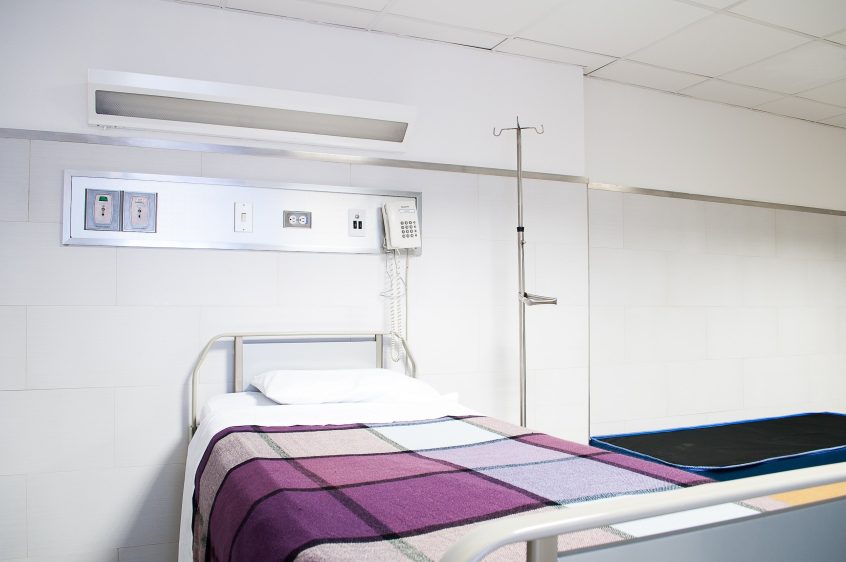A hospital stay can be unsettling and challenging for anyone, but it can be especially difficult for people with dementia who have trouble coping with new and unfamiliar surroundings.
These challenges may be compounded by the fact that many people with Alzheimer’s can no longer communicate effectively. A person with Alzheimer’s may not be able vocalize their needs if they are hungry or thirsty, or experiencing pain. Some people with dementia may experience hallucinations or paranoia. Hospital staff may not have the experience needed to recognize these behaviours.
According to a recent Annals of Internal Medicine study, people with Alzheimer’s disease greatly increase their risks for adverse outcomes (such as increased mental decline, institutionalization, or death) upon being admitted to the hospital. These risks are further increased for those dementia patients who develop delirium during their hospital stay.
Delirium is a sudden, heightened, confused state of mind. It may occur during an illness or after an operation. Many elements of a hospital stay can trigger delirium, including medications, medical procedures, immobilization, or the initial reason for the hospital admission such as an infection or an endocrine disorder. Diagnosing delirium in Alzheimer’s patients can be complicated as many of the symptoms are the same – memory problems and confusion.
The Alzheimer’s experts consulted in the study recommend that doctors try to keep people with dementia out of the hospital when possible. When hospitalization is absolutely necessary, they suggest that physicians should work closely with hospital staff to keep dementia patients oriented to try and prevent delirium. The study suggests that medications or procedures that could contribute to delirium should be avoided while in the hospital.
You can support your loved one with Alzheimer’s or dementia during their hospital stay by being proactive about trying to create an environment that reduces the risks of disorientation and delirium.
-
Providing some familiar objects in the hospital room can help people with dementia stay oriented.
-
If your loved one needs glasses or hearing aids, ensure that they are available while they are in the hospital so their senses are not impaired.
-
If they are able to walk, they should do so. Even just a short walk in the hallways a few times a day can be helpful.
-
Ensure that they are eating and drinking, and are able to get to the bathroom as needed.
-
Include the person with dementia in discussions about their care.
About Choice Homecare
When a patient requires personal care and support beyond what the hospital provides, Choice Homecare Ottawa can help. Our Hospital Support caregivers can ensure comfort and safety, and may prevent complications. Please contact us for more information.

